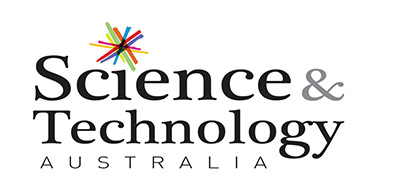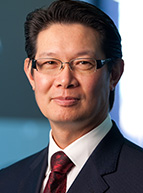
It was once said that nothing is certain in life except death and taxes. While the tax office will still get their cut, the grim reaper’s job is looking less secure.
The life expectancy of Australians has grown by 10 years since the 1970s and some believe the first person to live to 1000 has already been born, but how will this be achieved?
There is only one known species on the planet that is truly immortal, a little Jellyfish that continually revert between life stages to avoid aging. However, this is just one piece of the puzzle, as the jellyfish is still vulnerable to predators and disease.
If humans do find overcome the challenges to achieve immortality, there are countless new challenges to face. What would this do to our healthcare system, when would we run out of resources or would we simply leave this earth and colonise somewhere else?
This is the fifth and final event in the Academy of Science’s Life + Death series, exploring subjects that challenge opinions and start conversations.
We will hear from amazing experts trying to cheat death in their own special way—through mapping the code of life to bring back extinct species in the future; by creating artificial organs to prolong life and avoid aging; by suspending life until technologies exist to cure diseases, bring us back to life and allow us to live as immortals; and so much more.
Join us on 16 February as we explore IMMORTALITY in Adelaide.
Professor Jenny Graves is an evolutionary geneticist who works on Australian animals, including kangaroos and platypus, devils (Tasmanian) and dragons (lizards). Her research group uses the animals’ distant relationship to humans to discover how genes and chromosomes and regulatory systems evolved, and how they work in all animals including us.
Matt Fisher is a software engineer, jack-of-all-trades and the secretary of non-profit organisation Southern Cryonics, promoting awareness of the cryonic preservation of the human body.
Mr Fisher studied mechatronic engineering and computer science at the University of Adelaide and then worked for five years as an officer in the Australian Defence Force. He currently works as Director of Engineering at Edrolo, an educational technology web startup.
There is a good chance that medical technology will advance quickly enough that he will never need to be cryonically preserved, but Mr Fisher wants his parents’ generation to have the same opportunities he does for many extra years of healthy life.
Professor Peter Choong is an orthopaedic surgeon who is the Director of Orthopaedics at St. Vincent’s Hospital and also the Sir Hugh Devine Chair of Surgery and Head of the University of Melbourne Department of Surgery at St.Vincent’s Hospital.
In addition, Prof Choong is also the Chair of the Bone and Soft Tissue Tumour service at Peter MacCallum Cancer Centre.
He is a clinical academic who is heavily involved in teaching, training and research with a major focus of his work relating to arthritis surgery and limb reconstruction. He has published prolifically and is a recipient of many peer-reviewed grants including NHMRC, ARC, and CRC.
Professor Choong has held many national and international leadership positions including President of the Australian Orthopaedic Association, Chair of the Board in Orthopaedic Surgery at the RACS, and Chair of the Musculoskeletal Clinician Leadership Group at the Department of Health and Human Services, Victoria.
This series proudly supported by Science and Technology Australia

View the rest of the Science of life and death series.

It was once said that nothing is certain in life except death and taxes. While the tax office will still get their cut, the grim reaper’s job is looking less secure.
The life expectancy of Australians has grown by 10 years since the 1970s and some believe the first person to live to 1000 has already been born, but how will this be achieved?
There is only one known species on the planet that is truly immortal, a little Jellyfish that continually revert between life stages to avoid aging. However, this is just one piece of the puzzle, as the jellyfish is still vulnerable to predators and disease.
If humans do find overcome the challenges to achieve immortality, there are countless new challenges to face. What would this do to our healthcare system, when would we run out of resources or would we simply leave this earth and colonise somewhere else?
This is the fifth and final event in the Academy of Science’s Life + Death series, exploring subjects that challenge opinions and start conversations.
We will hear from amazing experts trying to cheat death in their own special way—through mapping the code of life to bring back extinct species in the future; by creating artificial organs to prolong life and avoid aging; by suspending life until technologies exist to cure diseases, bring us back to life and allow us to live as immortals; and so much more.
Join us on 16 February as we explore IMMORTALITY in Adelaide.

Professor Jenny Graves is an evolutionary geneticist who works on Australian animals, including kangaroos and platypus, devils (Tasmanian) and dragons (lizards). Her research group uses the animals’ distant relationship to humans to discover how genes and chromosomes and regulatory systems evolved, and how they work in all animals including us.
Matt Fisher is a software engineer, jack-of-all-trades and the secretary of non-profit organisation Southern Cryonics, promoting awareness of the cryonic preservation of the human body.
Mr Fisher studied mechatronic engineering and computer science at the University of Adelaide and then worked for five years as an officer in the Australian Defence Force. He currently works as Director of Engineering at Edrolo, an educational technology web startup.
There is a good chance that medical technology will advance quickly enough that he will never need to be cryonically preserved, but Mr Fisher wants his parents’ generation to have the same opportunities he does for many extra years of healthy life.
Professor Peter Choong is an orthopaedic surgeon who is the Director of Orthopaedics at St. Vincent’s Hospital and also the Sir Hugh Devine Chair of Surgery and Head of the University of Melbourne Department of Surgery at St.Vincent’s Hospital.
In addition, Prof Choong is also the Chair of the Bone and Soft Tissue Tumour service at Peter MacCallum Cancer Centre.
He is a clinical academic who is heavily involved in teaching, training and research with a major focus of his work relating to arthritis surgery and limb reconstruction. He has published prolifically and is a recipient of many peer-reviewed grants including NHMRC, ARC, and CRC.
Professor Choong has held many national and international leadership positions including President of the Australian Orthopaedic Association, Chair of the Board in Orthopaedic Surgery at the RACS, and Chair of the Musculoskeletal Clinician Leadership Group at the Department of Health and Human Services, Victoria.
This series proudly supported by

© 2024 Australian Academy of Science